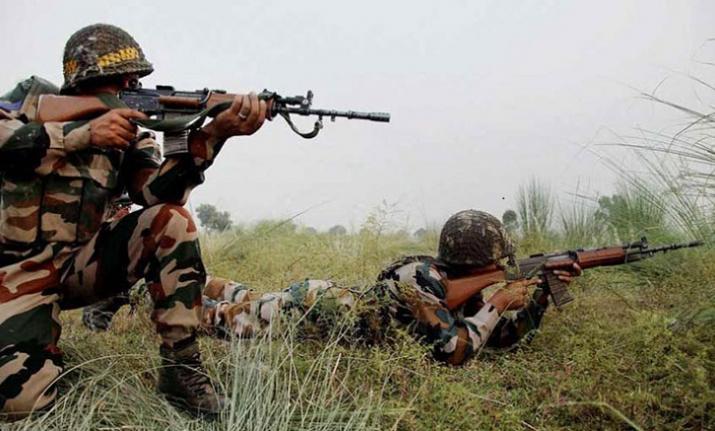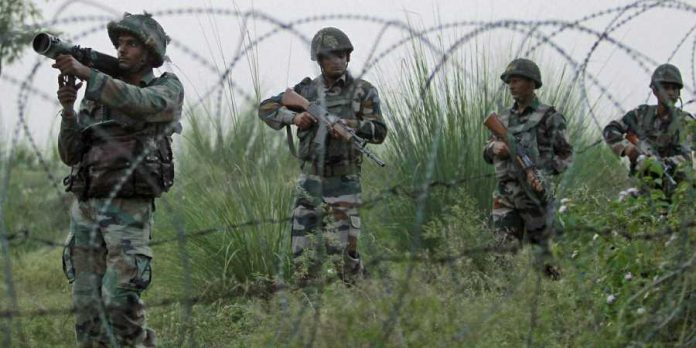An Army soldier was killed with Pakistan violating ceasefire again. There was heavy shelling in the forward areas and posts with mortar bombs along the Line of Control in Jammu and Kashmir’s Rajouri district as per officials. This was not the first time that the LoC was violated. Pakistani troops have violated ceasefire again in Keri belt of Sunderbani sector. One soldier was killed in the Pakistani firing.
The LoC has been violated more than 110 times by the Pakistani troops since January and has caused major upheavals in the relation between the two countries. On Monday night, the Pakistan army again initiated unprovoked ceasefire violation. They resorted to heavy shelling with mortar bombs and firing small arms along the LoC in the Sunderbani and Akhnoor sectors. This was confirmed by a defence spokesman.
There were four injuries along with a killing of an Indian army soldier when Pakistan Army violated the ceasefire by resorting to heavy mortar shelling and firing along the LoC in the Rajouri district. The army personnel who died in combat was Rifleman Karamjeet Singh. He was brought in critically injured and later succumbed to injuries.

Though these border skirmishes are common- it has lately risen quite a lot after the surgical strike- the one at Balakot where the Indian Air force struck the Jaish-e-Mohammed terror camp on 26th February 2019. It was India’s rightful answer to the Pakistani attack on Indian CRPF jawans. 40 CRPF jawans were killed on the 14th February 2019. It was such a hit on India that a retaliation was a must to make them understand that India as a nation will not accept such atrocities lying down.
In the last year, India witnessed the highest number of ceasefire violations. These number is a whooping 2,936 times by Pakistani troops in the last 15 years. The Indo-Pak border has never been in peace it seems as Pakistan continues to violate the ceasefire agreement of 2003. There has been repeated calls for restraining and adhering to the agreement during flag meetings. Violations have been due to which tensions are always high at the border.















